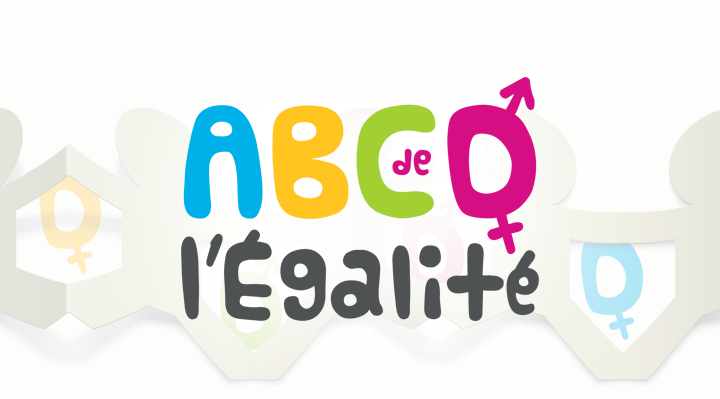Amidst the growing political tensions that ruthlessly divide our country, we easily forget that other countries face many of the same ideological battles. France, for instance, appears to people here in the States as not only the epicenter of high culture but a place of laissez-faire attitudes toward sex. They even elected a socialist president, François Hollande, in 2012. But for all its outwardly liberal stances, France is not without its conservative population that occasionally succeeds in pushing back progressive reforms.

Few on this side of the pond have even heard of les ABCD de l’égalité (or the ABCs of Equality) despite being an application of gender studies, widely considered a U.S. import by the French. The brainchild of Najat Vallaud-Belkacem, then minister of women’s rights, the ABCs was a daring initiative piloted in 600 classes across 275 schools in France during the 2013-2014 academic year. It was an experimental program to counter sexism and gender stereotypes in nursery and primary schools, the point at which children first start to acquire an understanding of gender roles. The French government understood that by nipping in the bud the formation of gender stereotypes, or the norms that compel each sex to adopt corresponding behaviors, the country would come closer to achieving equality between the sexes. This is not an unfamiliar concept: young girls are encouraged to play gentle, mild games with dolls and are therefore conditioned to be nurturing while little boys are expected to play rough games with trucks, and so it’s perceived as normal for them to be boisterous. As a result, girls in adulthood end up vying for low-paid jobs, giving up the pursuit of careers in STEM despite good grades, and boys as men seek out jobs that are more dangerous, stressful or difficult, which may explain their higher mortality rate. All of this further perpetuates the traditional division of roles.

Photo by Ashton Bingham
Rather than a curriculum with separate hours and content, the ABCs was more of an instructional program for teachers to “aid awareness of prejudice and convey a culture of equality between the sexes” by integrating the material across all subjects. The curriculum included different approaches to reflect on gender issues in literature, the arts, sports and language. For example, students applied feminist theory to classic fairy tales to draw attention to the rather passive roles of so-called heroines, like Snow White and Cinderella. The ubiquitous passivity of female characters in children’s stories paired with the emphasized value of beauty may likely instill in young girls unrealistic expectations of self-image and complacency to wait around for Prince Charming instead of developing skills and pursuing their own dreams. Another class did a reenactment of “Little Red Riding Hood” with boys playing Little Red Riding Hood and girls playing the wolf. The program also encouraged teachers to be mindful of gender roles in sports by creating intentionally co-ed teams and assigning more authoritative and aggressive positions, like referee or offense, to girls.
Taken for what it was and nothing more, you’d expect a general consensus of approval. Who would nay-say attempts to breakdown the seeds of inequality? Predictably, the program was met with severe backlash from the conservative religious community and extreme right who also rallied anti-gay activists. Critics denounced the teaching of “gender theory” to primary school kids, citing that it would “destroy the heterosexual model of the family,” “corrupt the youth of France” and “deny [France’s] biological and cultural reality.” The main figure in opposition to the ABCs was Farida Belghoul, known for her anti-racist activism in the 80s. She accused the government of imposing gender ideology and called for parents to remove their children from school one day a month in protest. Awareness of the campaign (“Day of Withdrawal from School” in English) was promoted via social networks and SMS. Parents were outraged when rumors circulated that schools were teaching kids to masturbate and forcing boys to wear dresses, resulting in nearly 30% absences in some areas. The moral panic got so out of hand that the minister of education at the time, Benoît Hamon, had to make a public statement reassuring parents that the rumors were untrue and that the government’s intention was not to deny the differences between boys and girls but to demonstrate that they are equal.

Photo by Andrew Branch
Despite positive reports that justified nationwide implementation of the ABCs, the program was ditched in light of the enormous opposition of a small minority. It was replaced by nothing more than a website listing resources and tools to combat inequality and sexual discrimination for teachers, parents, students and education professionals to consult.
So why does this matter for us here in the U.S.? It’s a pretty big deal for any government to address gender inequality at such a far-reaching, institutional level like education. It also demonstrates that the West still has a long way to go if a country as socially progressive as France still has great strides to recognizing gender as a social construct. Furthermore, the repeal of the ABCs at the demand of a conservative minority is one example of how the extreme right disseminates lies and fear mongering to seize policy. Sound familiar? Recognizing patterns and the way they unravel elsewhere allows us a broader perspective with which to critically examine similar issues at home.
By: Frances Lai

